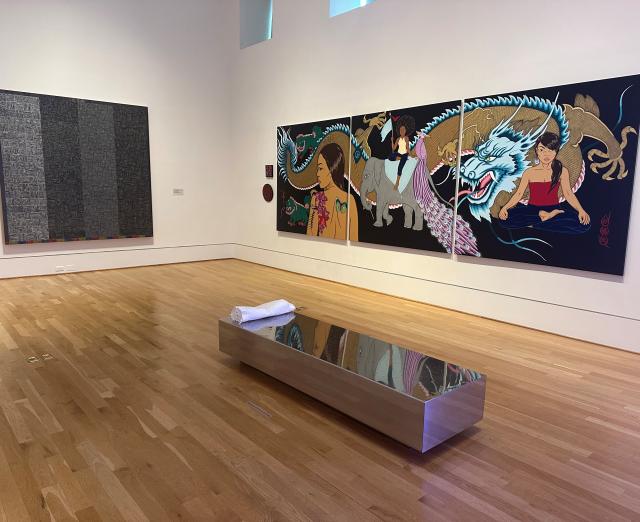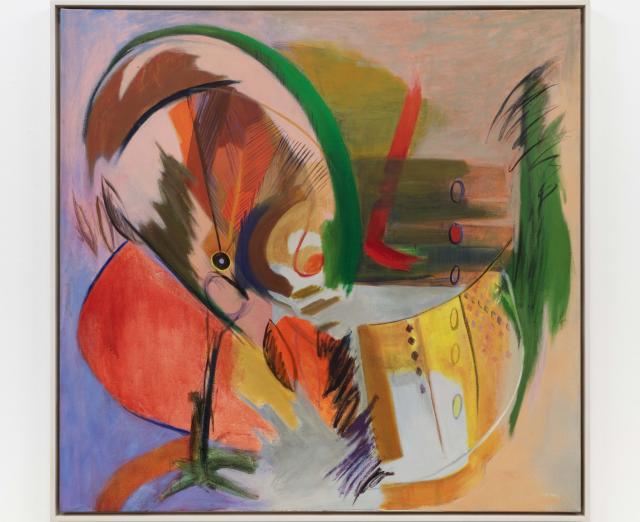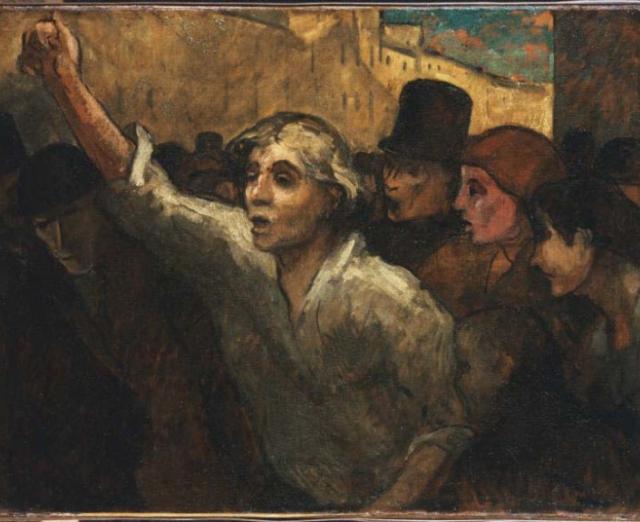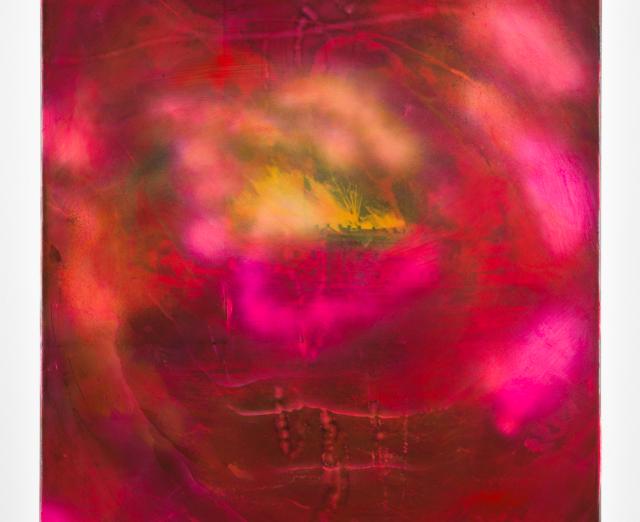The Phillips Collects: Zoë Charlton
Collection
On October 24, the Phillips unveiled its latest acquisition selected by the Contemporaries Steering Committee: Zoë Charlton’s The Country A Wilderness Unsubdued, 2018.
Zoë Charlton (b. 1973, Tallahassee, Florida) is best known for her large-scale drawings of nudes as well as collages that merge diverse figures with phantasmagoric landscapes. Combining cut-outs from books and magazines, decorative stickers of trees, leaves, clouds, and birds, with drawings from life, she creates poignant images that blend elements of high and low culture and confront the viewer with their scale, directness, and bold expression. The Country A Wilderness Unsubdued is part of the artist’s Migration series produced during her residency at ArtPace in San Antonio, Texas, which draws from Charlton’s memories of her grandmother’s homestead in Florida. Here, lush vegetation grows out of a female body, suggesting both the beauty and the weight of the world.
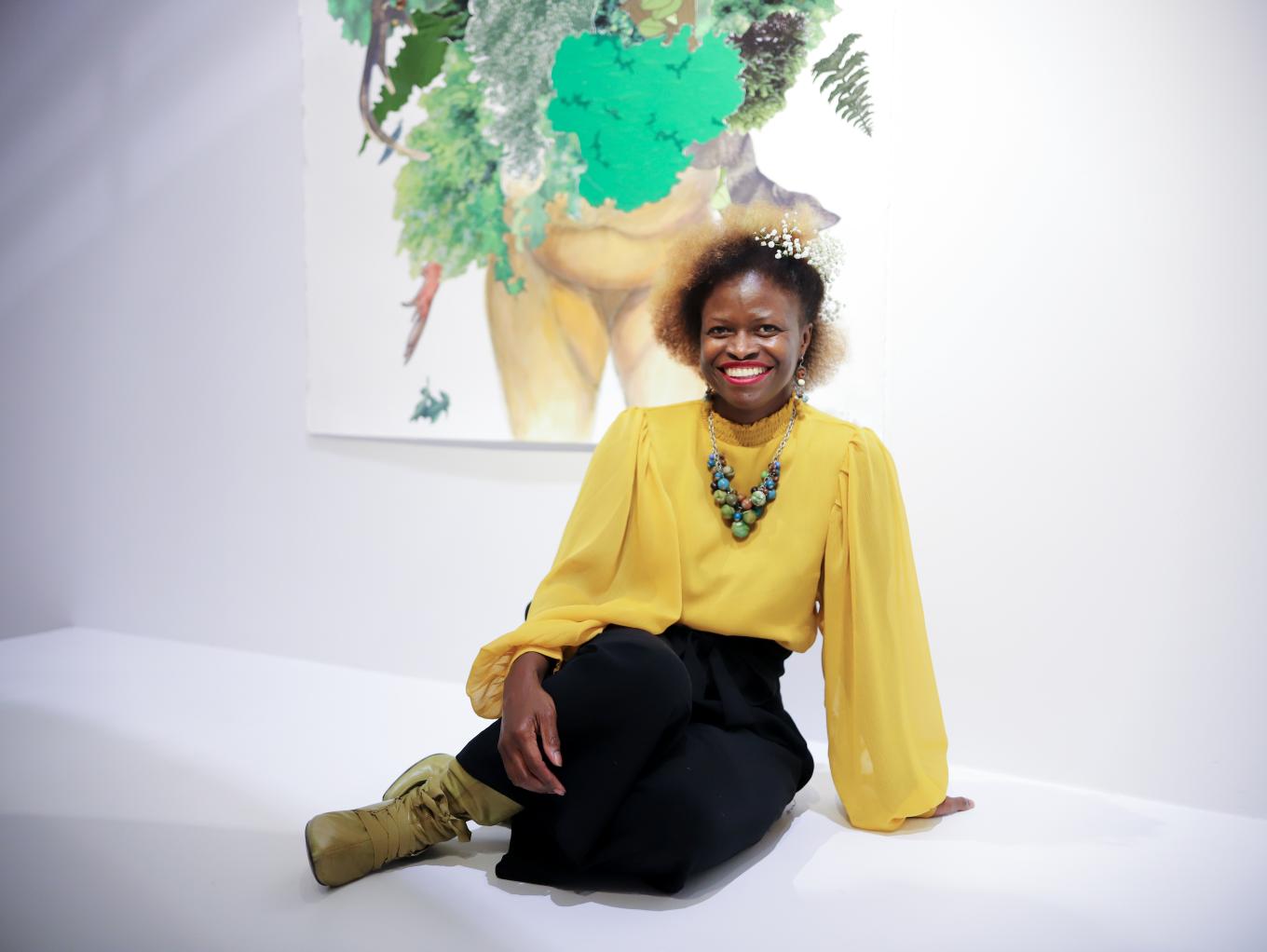
Zoë Charlton with her work The Country A Wilderness Unsubdued (2018) at the unveiling. Photo: Ann Lipscombe
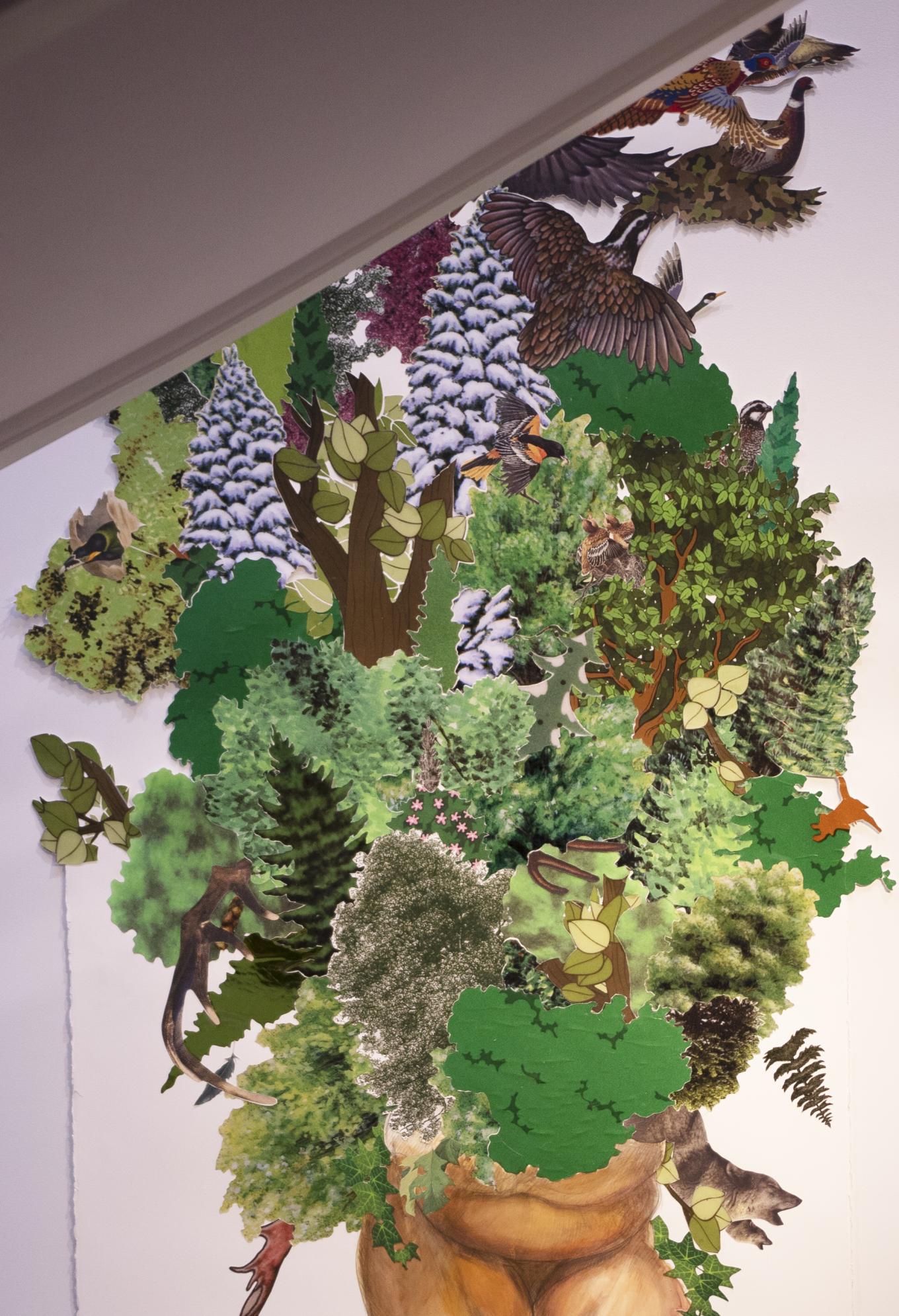
Detail of The Country A Wilderness Unsubdued (2018)
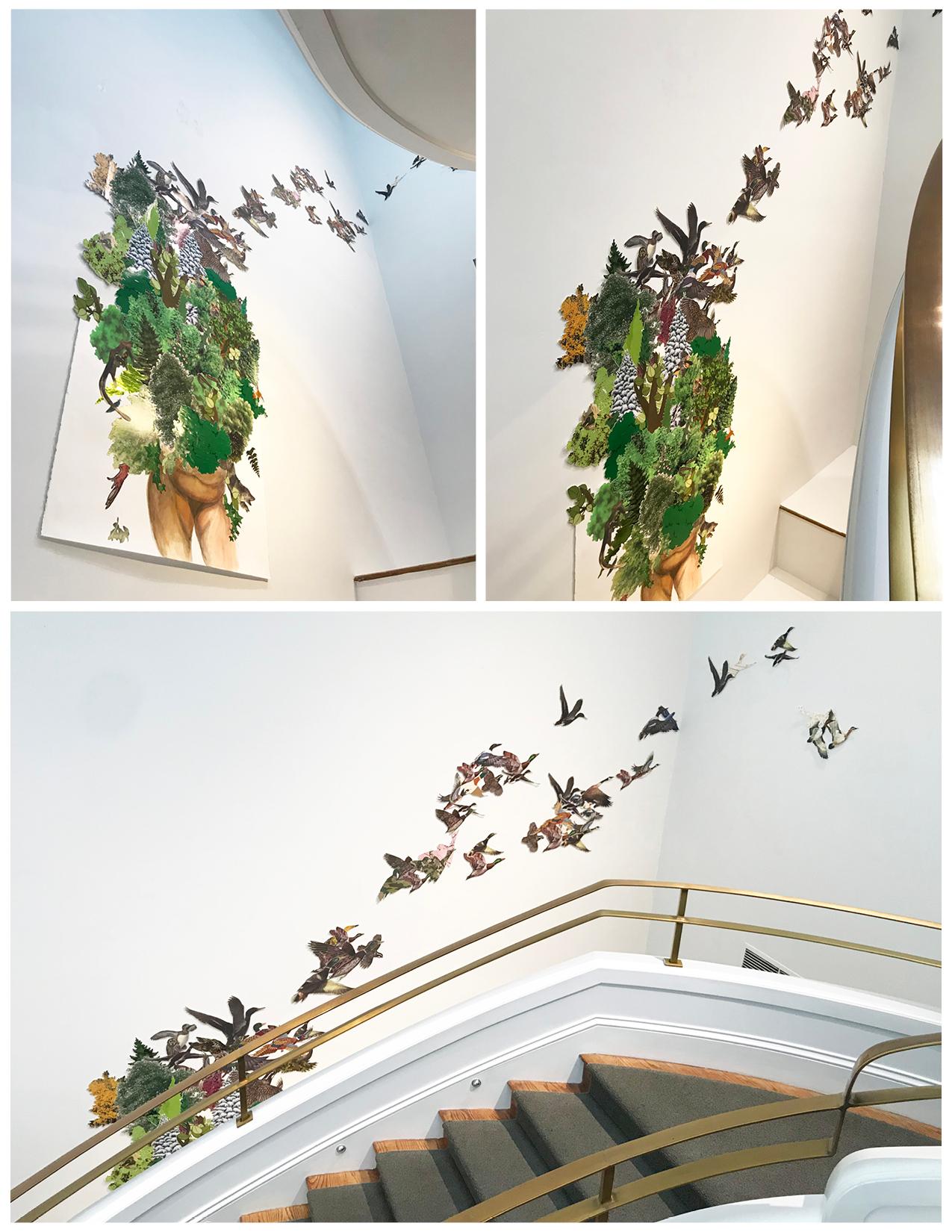
The artwork is on view along the Goh Annex stairwell, giving visitors various perspectives along the stairs.
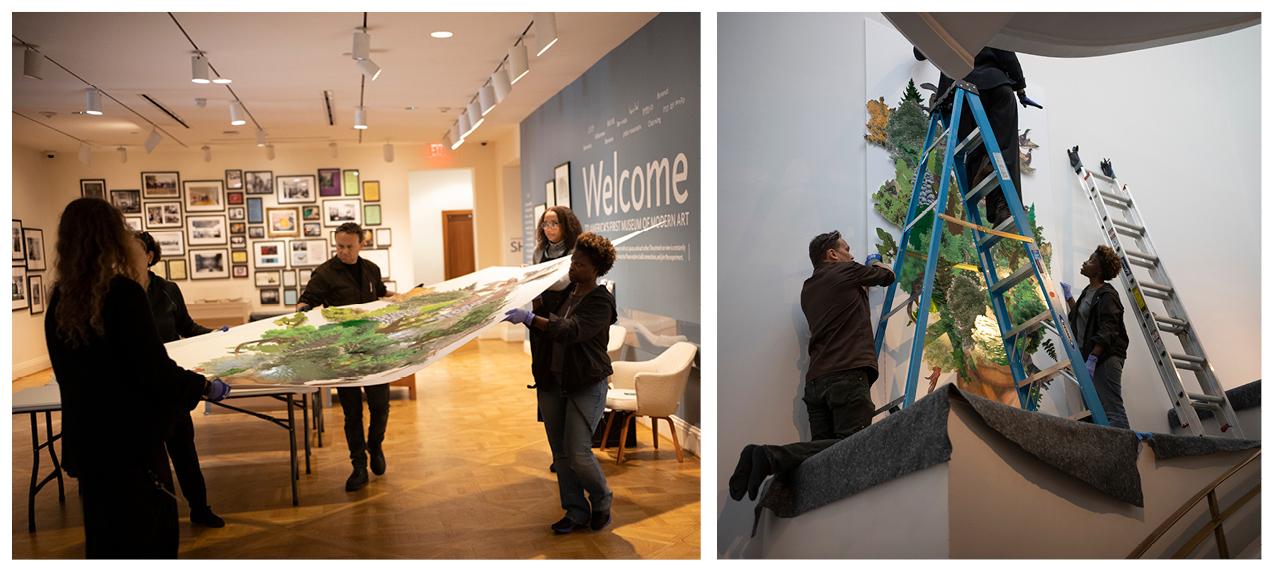
Unpacking and installing the artwork
Charlton received her MFA from the University of Texas at Austin. Her work has been featured in the Crystal Bridges Museum of American Art, Bentonville, Arkansas; Studio Museum of Harlem, New York; Zacheta National Gallery of Art, Warsaw, Poland, and other museums. Charlton lives in Baltimore and is Associate Professor of Art at American University in Washington, DC.
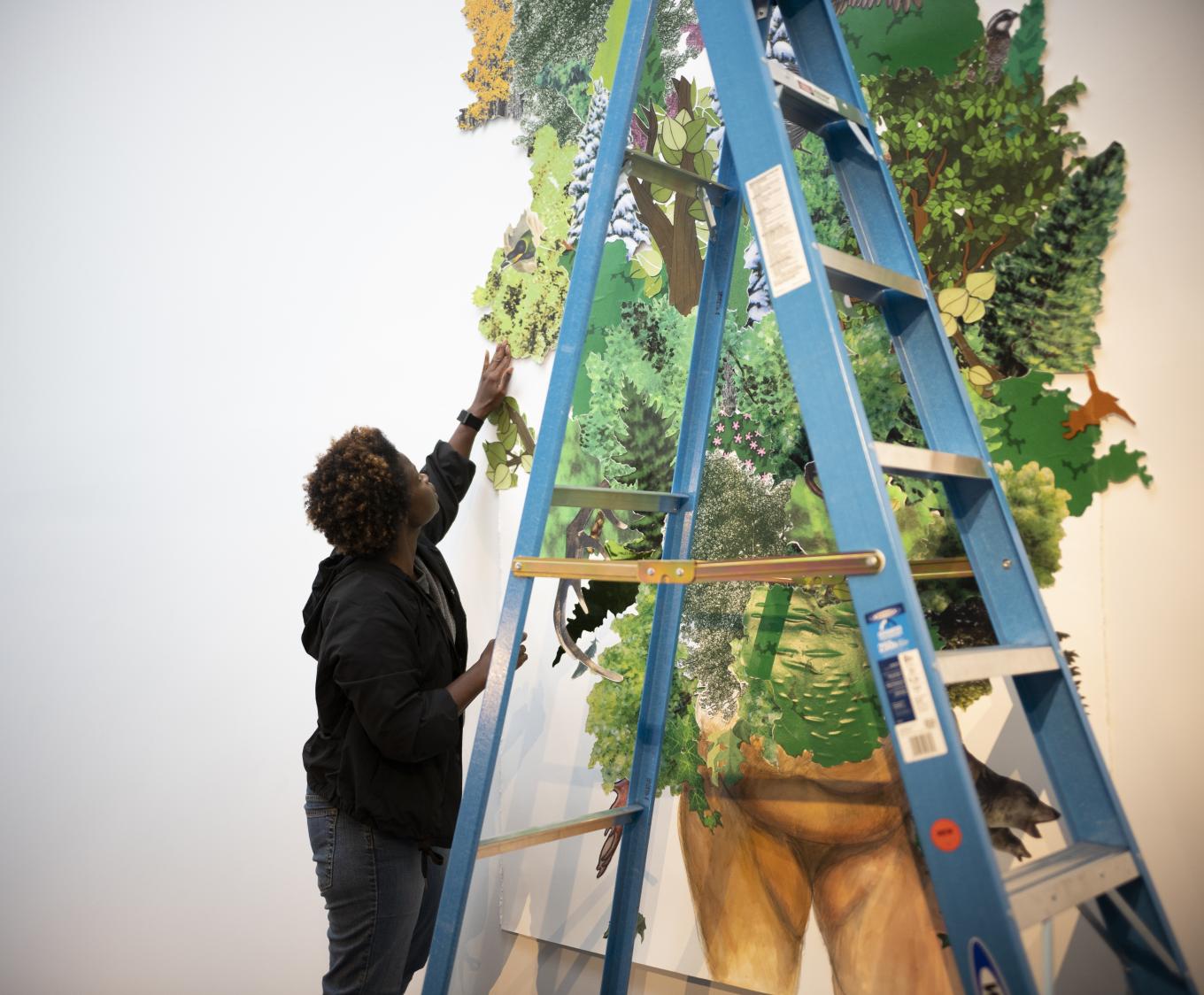
The artist was on site for the installation
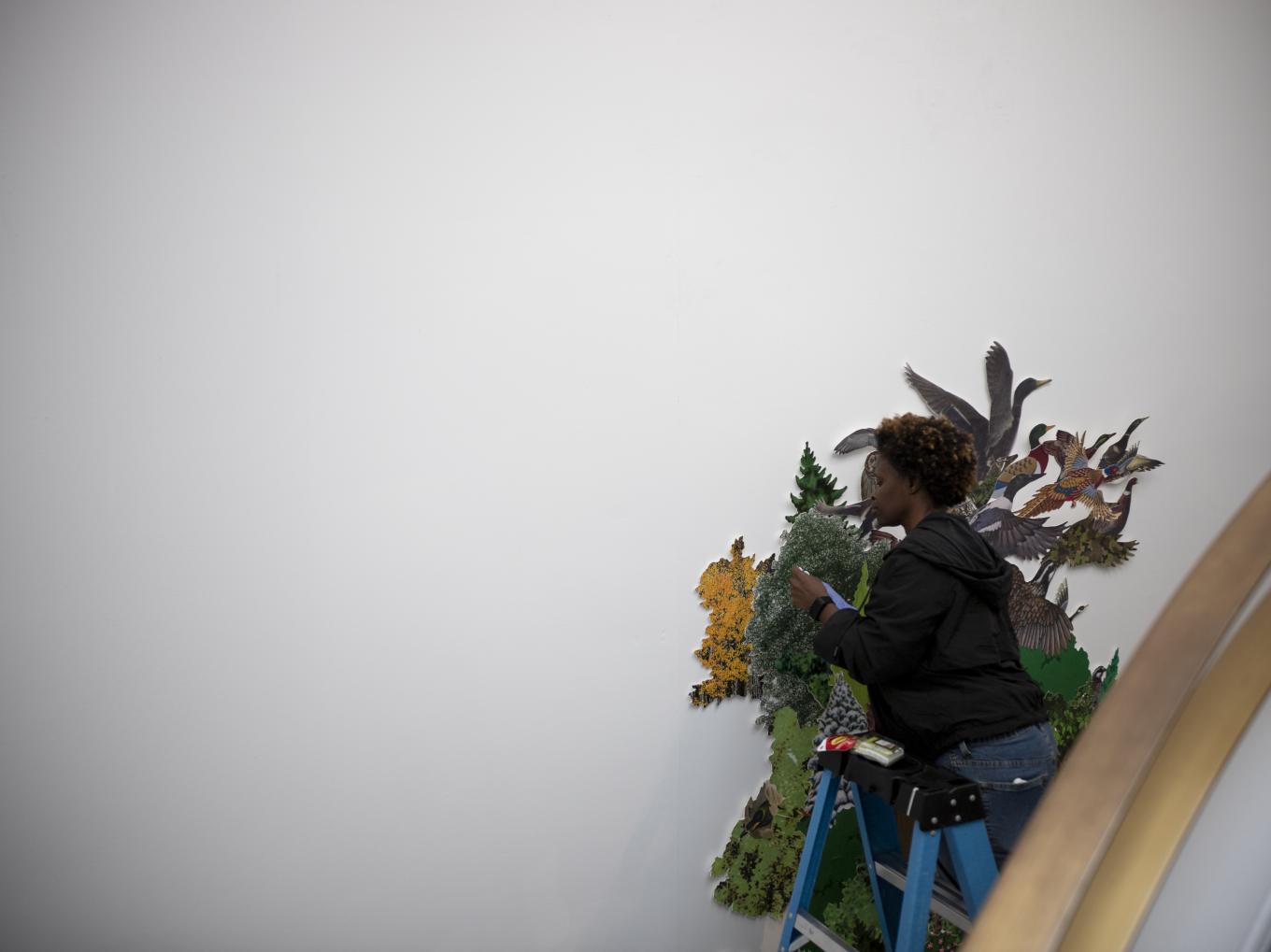
Installation of the artwork
The Contemporaries Steering Committee—under the guidance of Phillips Senior Curator of Modern and Contemporary Art Vesela Sretenović and Vradenburg Director and CEO Dorothy Kosinski—selected the work by Zoë Charlton for the Phillips’s collection. The Contemporaries Acquisition Fund—active from 1996 to 2008 and recently reinstated—closely involves young professionals in the life and philanthropic efforts of the Phillips. Contemporaries Steering Committee Member Juliana Biondo explains why the committee was drawn to the piece: “Zoë Charlton’s piece has an immediately striking dynamism that explodes in both directions as it moves upward. The multiplicity of foliage and animals—meticulously yet spontaneously placed—create a sense of ever-growing abundance. Combined with the surrealism of the human torso, the rich visual field triggers a whole host of questions about growth and our relationship to the natural.”
For more information about the Contemporaries, visit PhillipsCollection.org/contemporaries or contact membership@phillipscollection.org.

